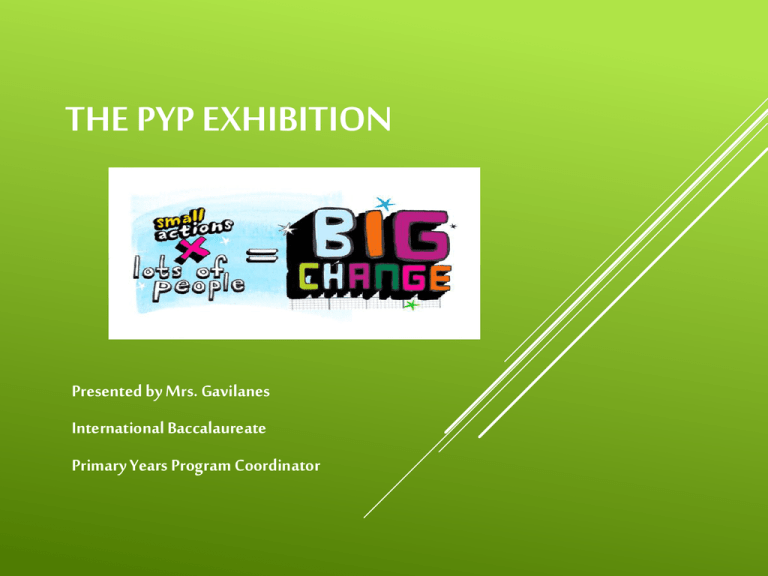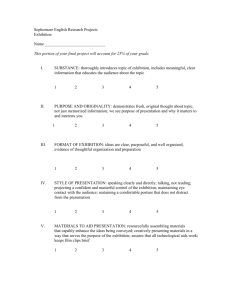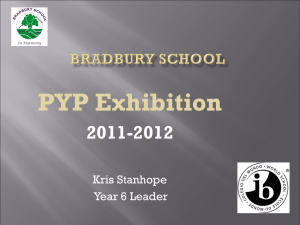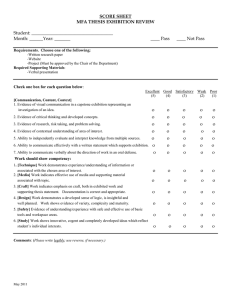THE PYP EXHIBITION Presented by Mrs. Gavilanes International Baccalaureate Primary Years Program Coordinator
advertisement

THE PYP EXHIBITION Presented by Mrs. Gavilanes International Baccalaureate Primary Years Program Coordinator PURPOSE The Exhibition has a number of key purposes: to engage in an in-depth, collaborative inquiry. to become more independent with your own learning. to inquire into an area of learning of which you have personal interest. it gives you the opportunity to take action about a real-life issue. it unites the whole school community and the wider community through collaborative learning. it is a celebration of your transition of the from primary to middle school NON NEGOTIABLE FEATURES Students are required to engage in a collaborative, inquiry based process that involves them in identifying, investigating and offering solutions to real-life issues or problems. Students must be involved in all stages from the planning to the final presentation: the issue the learning outcomes the activities the assessment The Exhibition should include: examples of written work oral presentations examples of technology performances in any medium – dance, drama, film, video, mixed media. HOW MUCH TIME DO STUDENTS SPEND WORKING ON THE EXHIBITION? The students will start collecting examples of local and global issues in January 2016 You will be placed in groups by the teachers in February 2016 You will begin working on your inquiries at school throughout the remainder of the semester. You will continue to have regular subjects during the Exhibition process, but a portion of each day will be used working on inquiries. During Prime Time you will meet with your assigned mentors. The final Exhibition date will be May 21st . The public will be invited to attend! HOW ARE WE ASSESSING? Rubrics will be used to assess the inquiry process. Each rubric will assess a different aspect of the Exhibition: The individual journal The process of collating data, researching and analysing research The attitudes, attributes of the learner profile and self management skills (e.g. time management) A self-reflection which is completed by each student The final product WHAT ABOUT HOMEWORK? You will have homework during this time. You should use your time at home to research and prepare for the work in class. You will, on occasion, need to complete your personal interviews outside of school and with the assistance of a parent. The majority of the work will be done in class so the teacher can keep track of progress and to ensure that you are self-learning. ROLES IN THE EXHIBITION Mentor Group of students Parents Teacher THE ROLE OF THE PARENT Parents can: Have an understanding of the Exhibition requirements. Keep informed about the process by reading newsletters and attending meetings. Support and encourage your children throughout the process. Provide knowledge or areas of expertise to any of the groups. Help to locate resources – people, places, media and information Encourage in-depth inquiry and respect of student ownership of the process. Celebrate with the students by attending the final presentations on May 21st. WHERE WE ARE IN PLACE AND TIME An inquiry into: • Orientation in place and time • Personal histories • Home and Journeys • The discoveries, exploration, and migrations of humankind • The relationships between and the interconnectedness of individuals and civilizations, from local and global perspectives Please QUESTIONS? feel free to ask any questions at any time. Ask any 5th Grade Teacher, any Mentor, or Mrs. Gavilanes


